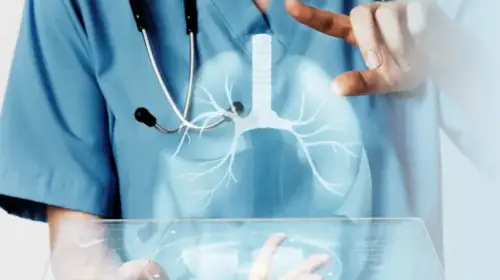Lung transplants represent a critical intervention for individuals with severe lung diseases that cannot be managed through conventional treatments. This life-saving procedure offers hope and a new lease on life to patients suffering from conditions such as chronic obstructive pulmonary disease (COPD), cystic fibrosis, idiopathic pulmonary fibrosis, and other advanced respiratory disorders. In this article, we will explore the essentials of lung transplants, including the process, benefits, risks, and considerations for those seeking this treatment.
What is a Lung Transplant?
A lung transplant is a surgical procedure where a diseased lung is replaced with a healthy lung from a deceased donor. This operation is performed to improve the patient’s breathing capacity and overall quality of life when other treatments have failed. Lung transplants can involve either a single lung or both lungs, depending on the patient’s condition and needs.
Who is a Candidate for a Lung Transplant?
Candidates for a lung transplant typically suffer from end-stage lung disease and have exhausted other treatment options. Common indications for a lung transplant include:
- Chronic Obstructive Pulmonary Disease (COPD): A progressive disease that causes obstructed airflow from the lungs.
- Cystic Fibrosis: A genetic disorder that leads to severe lung damage and other complications.
- Idiopathic Pulmonary Fibrosis (IPF): A condition that causes scarring of the lung tissue, leading to difficulty in breathing.
- Pulmonary Hypertension: High blood pressure in the pulmonary arteries that can strain the heart and lungs.
- Bronchiectasis: Chronic dilation and inflammation of the bronchial tubes.
Patients must meet specific criteria to be eligible for a lung transplant. These criteria include the severity of the lung disease, overall health, and the absence of other serious conditions that could complicate the surgery. Dr Arvind Kumar is considered a leading specialist who can find out if you meet the criteria.
The Lung Transplant Process
The lung transplant process involves several key stages:
1. Evaluation
Before being placed on the transplant list, patients undergo a comprehensive evaluation to assess their suitability for the procedure. This evaluation includes:
- Medical History and Physical Examination: To understand the extent of lung damage and overall health.
- Diagnostic Tests: Such as chest X-rays, CT scans, pulmonary function tests, and blood tests.
- Psychosocial Assessment: To ensure the patient is mentally and emotionally prepared for the transplant and its aftermath.
2. Transplant List
If deemed a suitable candidate, the patient is placed on the lung transplant waiting list. The wait time can vary depending on factors such as blood type, lung size, and overall health. The Organ Procurement and Transplantation Network (OPTN) coordinates the allocation of donor organs based on these factors.
3. Finding a Donor
When a suitable donor lung becomes available, the patient is contacted and must be prepared to undergo the surgery promptly. Donor lungs are matched based on factors such as blood type, tissue compatibility, and the size of the organ.
4. Surgery
Lung transplant surgery typically involves the following steps:
- Anesthesia: The patient is put under general anesthesia.
- Incision: The surgeon makes an incision in the chest to access the lungs.
- Removal of Diseased Lungs: The damaged lungs are removed, and the healthy donor lungs are implanted.
- Connection: The new lungs are connected to the blood vessels and airways.
- Closure: The chest is closed, and the patient is moved to the intensive care unit (ICU) for post-operative care.
5. Recovery
Post-surgery recovery involves close monitoring in the ICU, followed by a hospital stay that can last several weeks. Recovery includes managing pain, preventing infections, and gradually increasing physical activity. Patients will also need to adhere to a strict medication regimen to prevent organ rejection.
Benefits of a Lung Transplant
A successful lung transplant offers several significant benefits:
- Improved Breathing: Enhanced lung function leads to better oxygenation and ease of breathing.
- Increased Energy Levels: Patients often experience a notable increase in energy and stamina.
- Enhanced Quality of Life: Many patients regain the ability to engage in activities they previously could not perform.
- Extended Lifespan: A lung transplant can significantly prolong life for patients with severe lung diseases.
Risks and Complications
Like any major surgery, lung transplants come with risks and potential complications, including:
- Rejection: The immune system may recognize the new lung as foreign and attempt to attack it. Immunosuppressive medications are used to mitigate this risk.
- Infection: Post-surgical patients are at higher risk for infections due to immunosuppressive therapy.
- Organ Failure: Although rare, the transplanted lung may not function properly or may fail.
- Blood Clots: Risk of blood clots in the lungs or other areas of the body.
- Side Effects of Medications: Immunosuppressive drugs can have side effects, including increased risk of diabetes, hypertension, and kidney issues.
Long-Term Care and Follow-Up
After a lung transplant, patients require ongoing care and regular follow-ups to monitor lung function, manage medications, and detect any signs of rejection or complications early. Follow-up care includes:
- Regular Check-Ups: Visits to the transplant team to assess lung function and overall health.
- Medication Management: Adjusting immunosuppressive drugs and other medications as needed.
- Lifestyle Adjustments: Adopting a healthy lifestyle, including diet, exercise, and avoiding smoking, to support overall health and the success of the transplant.
Lung Transplants in Different Regions
For those considering a lung transplant in Delhi, it is important to seek facilities with a strong reputation for excellence in transplant care. Delhi offers a range of medical institutions equipped with advanced technology and experienced teams specializing in lung transplants. These centres provide comprehensive care, including pre-transplant evaluation, surgical intervention, and post-transplant support.

